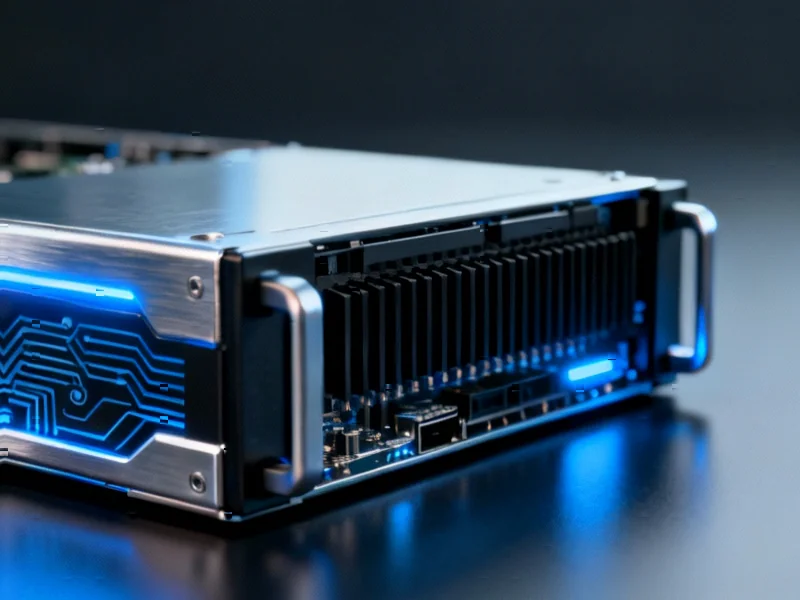According to CNBC, Lambda and Microsoft have entered into a multibillion-dollar agreement focused on AI infrastructure featuring Nvidia chips, with Lambda CEO Stephen Balaban describing the current environment as “the largest technology buildout that we’ve ever seen.” The deal extends a partnership dating back to 2018 between the two companies, though specific financial terms remain undisclosed. Balaban attributed the agreement to surging consumer demand for AI services including ChatGPT and Claude, noting the strong performance of the AI industry during his appearance on CNBC’s “Money Movers” on Monday. This partnership represents another major move in the escalating competition for AI infrastructure resources.
The AI Computing Bottleneck Intensifies
This deal reveals the critical infrastructure constraints facing the AI industry that go far beyond simple chip shortages. While Nvidia’s H100 and upcoming Blackwell architecture GPUs represent the most visible component, the real challenge lies in building complete systems capable of delivering sustained performance at scale. Lambda brings specialized expertise in optimizing GPU clusters for AI workloads, which complements Microsoft’s massive data center footprint and Azure cloud platform. The partnership essentially creates a vertically integrated supply chain where Lambda handles the hardware optimization while Microsoft provides the global distribution and enterprise sales channels.
Enterprise Customers Face New Realities
For enterprise customers, this consolidation means both opportunities and challenges. On one hand, partnerships like this should theoretically increase available computing capacity for training and inference workloads. However, it also concentrates power among fewer providers and could lead to vendor lock-in scenarios where companies become dependent on specific infrastructure stacks. Enterprises seeking to develop proprietary AI models may find themselves competing directly with Microsoft’s own AI initiatives for computing resources, creating potential conflicts of interest. The situation echoes the early cloud wars, where infrastructure became a strategic differentiator rather than just a utility service.
Accelerating Market Consolidation
This deal signals an accelerating trend toward consolidation in the AI infrastructure market. Smaller AI startups and research organizations without similar partnerships may find themselves increasingly priced out of the market or forced to accept inferior computing access. The multibillion-dollar scale suggests Microsoft is making a strategic bet that controlling AI infrastructure will be as important as controlling the models themselves. This mirrors historical patterns in technology where platform owners eventually capture most of the value, leaving application developers with thinner margins. Companies like Azure AI customers now face the reality that their infrastructure provider is also their potential competitor in AI services.
Global Infrastructure Distribution Challenges
The geographic implications of this partnership deserve attention. AI computing capacity isn’t evenly distributed globally, and deals of this magnitude tend to concentrate resources in specific regions, primarily North America and Europe. This creates challenges for companies in emerging markets and countries with data sovereignty requirements. The partnership could exacerbate existing divides in AI capability between regions, potentially limiting global innovation. As governments worldwide implement AI regulations, the ability to access adequate computing resources within jurisdictional boundaries becomes increasingly important for compliance and competitive reasons.
The Road Ahead for AI Infrastructure
Looking forward, this deal represents just one move in what will likely become an increasingly complex ecosystem of partnerships and competition. We can expect to see similar arrangements between other cloud providers and specialized hardware companies, along with potential regulatory scrutiny as market concentration increases. The success of alternatives like AMD’s Instinct accelerators and custom AI chips from Google and Amazon will be crucial for maintaining competitive pressure. Ultimately, the health of the AI ecosystem depends on ensuring that innovative companies can access the computing resources they need without being dependent on potential competitors.




